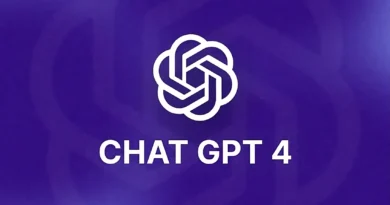Google releases ‘open’ AI models after Meta
In a significant move towards democratizing artificial intelligence (AI) research and development, Google has announced the release of its ‘open’ AI models to the public. This initiative marks a pivotal moment in the tech industry, offering unprecedented access to cutting-edge AI technologies. Let’s delve deeper into this groundbreaking development and its implications.
Understanding Google’s Initiative
Google’s decision to release ‘open’ AI models reflects its commitment to fostering collaboration and innovation within the AI community. By making these models accessible to researchers, developers, and enthusiasts worldwide, Google aims to accelerate the pace of AI advancements and address complex societal challenges.
Benefits of Making AI Models Open
The release of ‘open’ AI models by Google presents several key benefits. Firstly, it promotes transparency and reproducibility in AI research, allowing for greater scrutiny and peer review. Additionally, it enables researchers to build upon existing models and develop innovative applications across various domains, from healthcare to autonomous vehicles.
Impact on AI Research and Development
This initiative is poised to revolutionize the landscape of AI research and development. By providing access to state-of-the-art models, Google empowers researchers to explore new avenues of inquiry and push the boundaries of AI capabilities. Moreover, it fosters collaboration between academia and industry, facilitating knowledge exchange and interdisciplinary innovation.
Comparison with Meta’s Approach to AI
In contrast to Meta’s more proprietary approach to AI, characterized by closed-source algorithms and limited access, Google’s decision to release ‘open’ AI models signals a departure from traditional practices. While Meta prioritizes user privacy and data protection, Google emphasizes the importance of open collaboration and knowledge sharing in driving AI progress.
Potential Challenges and Limitations
Despite its transformative potential, the release of ‘open’ AI models may pose certain challenges and limitations. Chief among these are concerns related to data privacy, security, and bias mitigation. Additionally, ensuring the robustness and reliability of open-source AI models requires ongoing maintenance and community engagement.
Opportunities for Collaboration and Innovation
The availability of ‘open’ AI models creates vast opportunities for collaboration and innovation across industries. From startups to multinational corporations, organizations can leverage these models to develop custom solutions tailored to their specific needs. Furthermore, cross-disciplinary collaborations between AI researchers and domain experts can lead to breakthrough discoveries and real-world applications.
Ethical Considerations Surrounding Open AI Models
As AI technologies become more ubiquitous, ethical considerations become increasingly paramount. Google’s commitment to ethical AI principles, including fairness, accountability, and transparency, underscores the importance of responsible AI development. By fostering an open and inclusive ecosystem, Google aims to mitigate potential ethical risks and ensure that AI benefits society as a whole.
Implications for Businesses and Industries
The release of ‘open’ AI models has profound implications for businesses and industries seeking to harness the power of AI. From enhancing customer experiences to optimizing operations, AI-driven solutions can drive innovation and competitive advantage. Moreover, by embracing open collaboration, businesses can tap into a global pool of talent and expertise to accelerate their AI initiatives.
User Accessibility and Democratization of AI Technology
One of the most significant outcomes of Google’s initiative is the democratization of AI technology. By making advanced AI models accessible to a broader audience, Google empowers individuals and organizations to explore AI’s potential and contribute to its evolution. This democratization fosters inclusivity and diversity in AI development, ensuring that no one is left behind in the AI revolution.
Google’s Commitment to Transparency and Accountability
Central to Google’s approach is a commitment to transparency and accountability in AI development and deployment. Through rigorous testing, validation, and documentation, Google strives to ensure the reliability and trustworthiness of its AI models. Furthermore, by engaging with stakeholders and soliciting feedback, Google demonstrates its dedication to continuous improvement and responsible AI stewardship.
Future Implications and Advancements
Looking ahead, the release of ‘open’ AI models heralds a new era of democratized innovation and collaboration. As AI technologies continue to evolve, we can expect further advancements in areas such as natural language processing, computer vision, and reinforcement learning. By embracing openness and collaboration, the AI community can unlock the full potential of AI to address global challenges and improve the human condition.
Conclusion
In conclusion, Google’s decision to release ‘open’ AI models represents a paradigm shift in the field of artificial intelligence. By fostering openness, collaboration, and ethical stewardship, Google paves the way for a more inclusive and responsible AI ecosystem. As we embark on this journey towards AI democratization, let us seize the opportunities ahead and ensure that AI serves the greater good.
Read More Blogs About AI Here : Sprout Write
Read Another Article Here : Reuters





Wow Thanks for this posting i find it hard to acquire great important information out there when it comes to this blog posts thank for the article website
Wow Thanks for this blog post i find it hard to track down beneficial advice out there when it comes to this blog posts appreciate for the information site